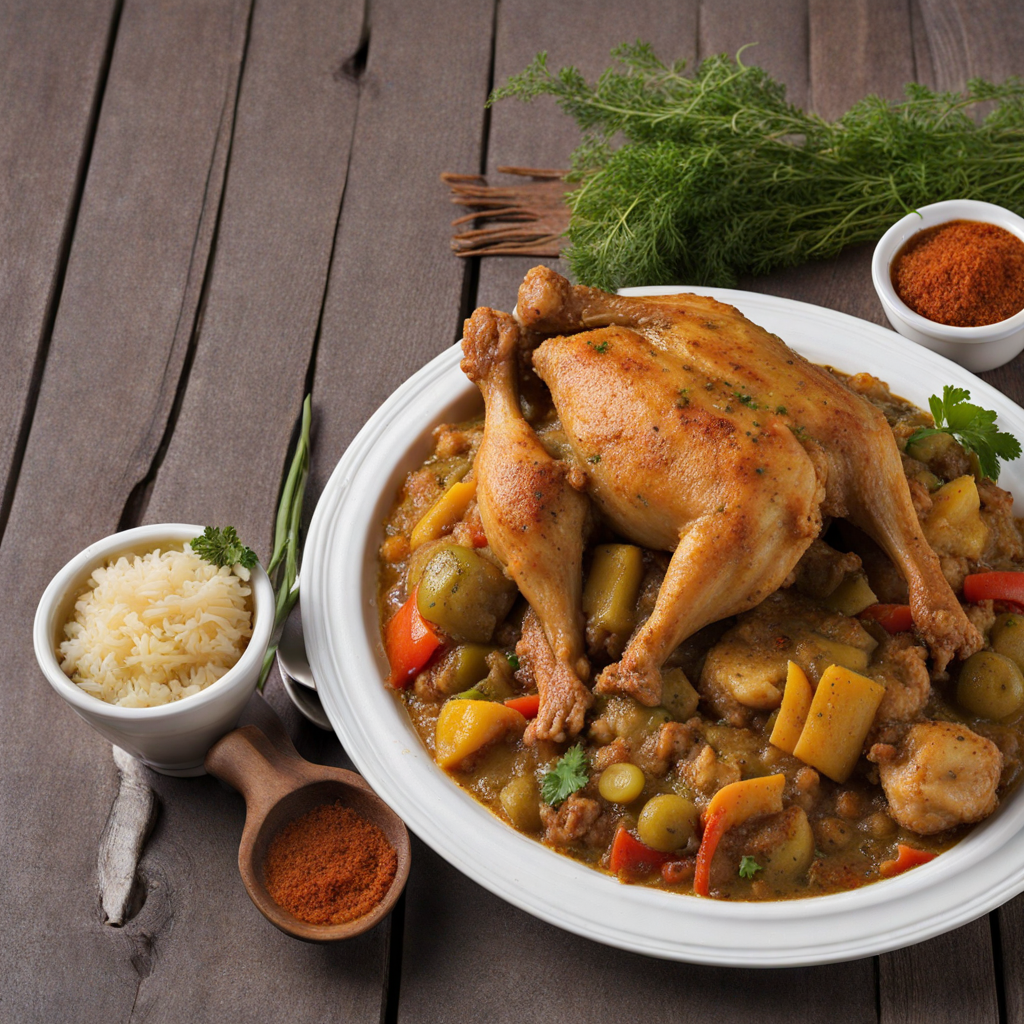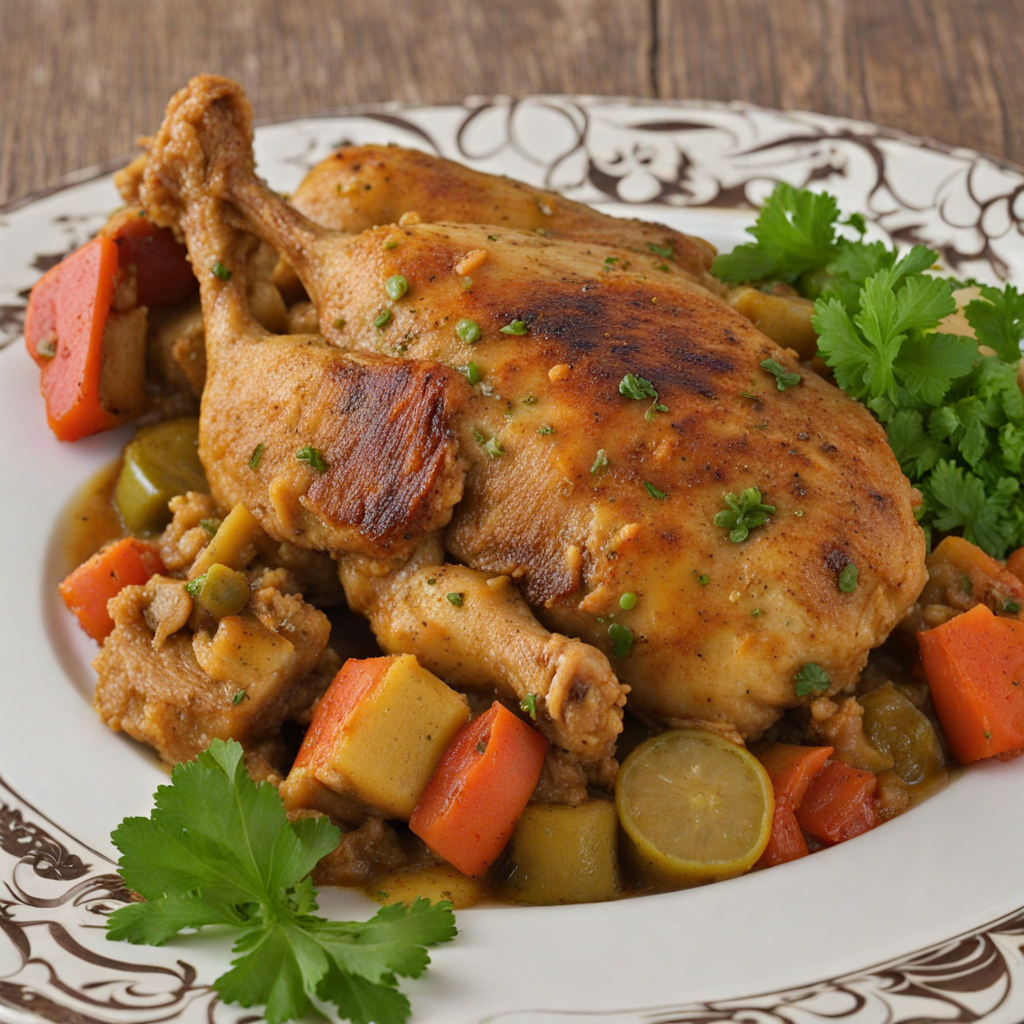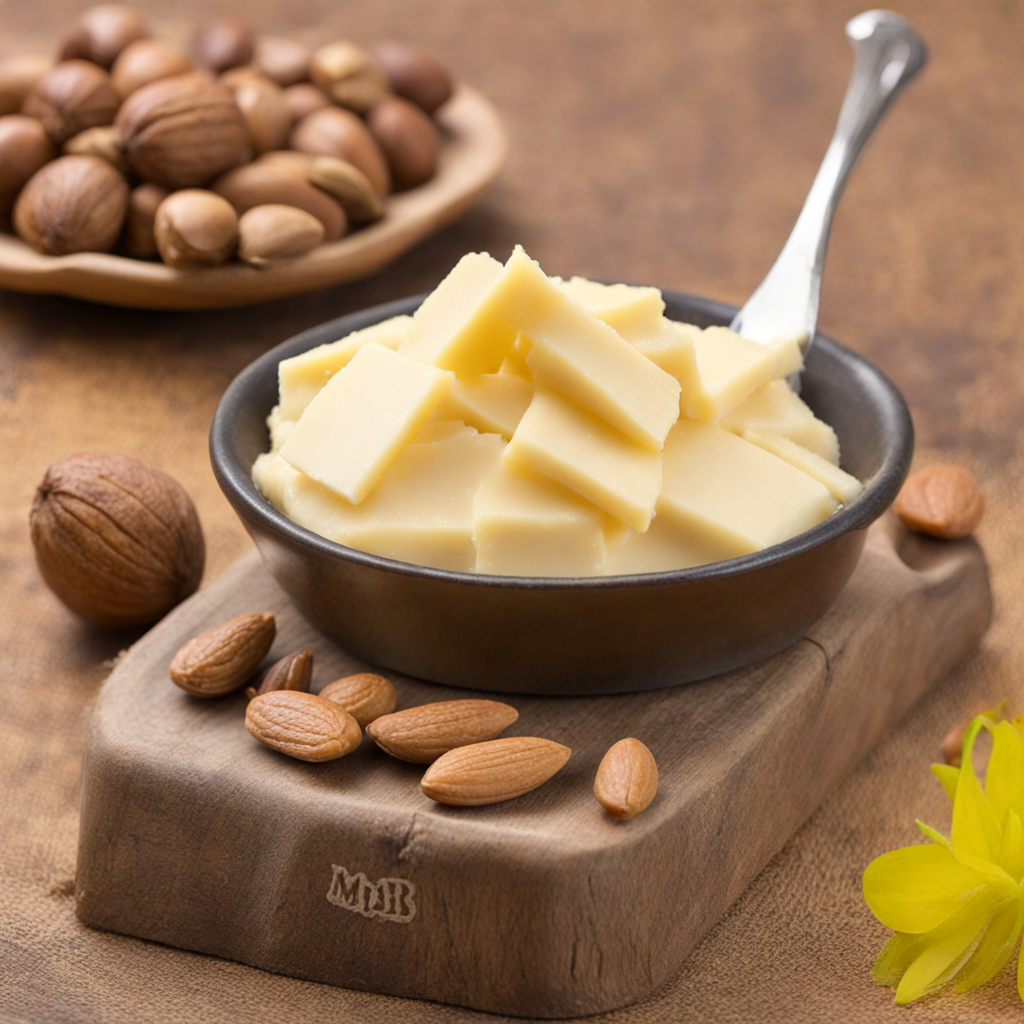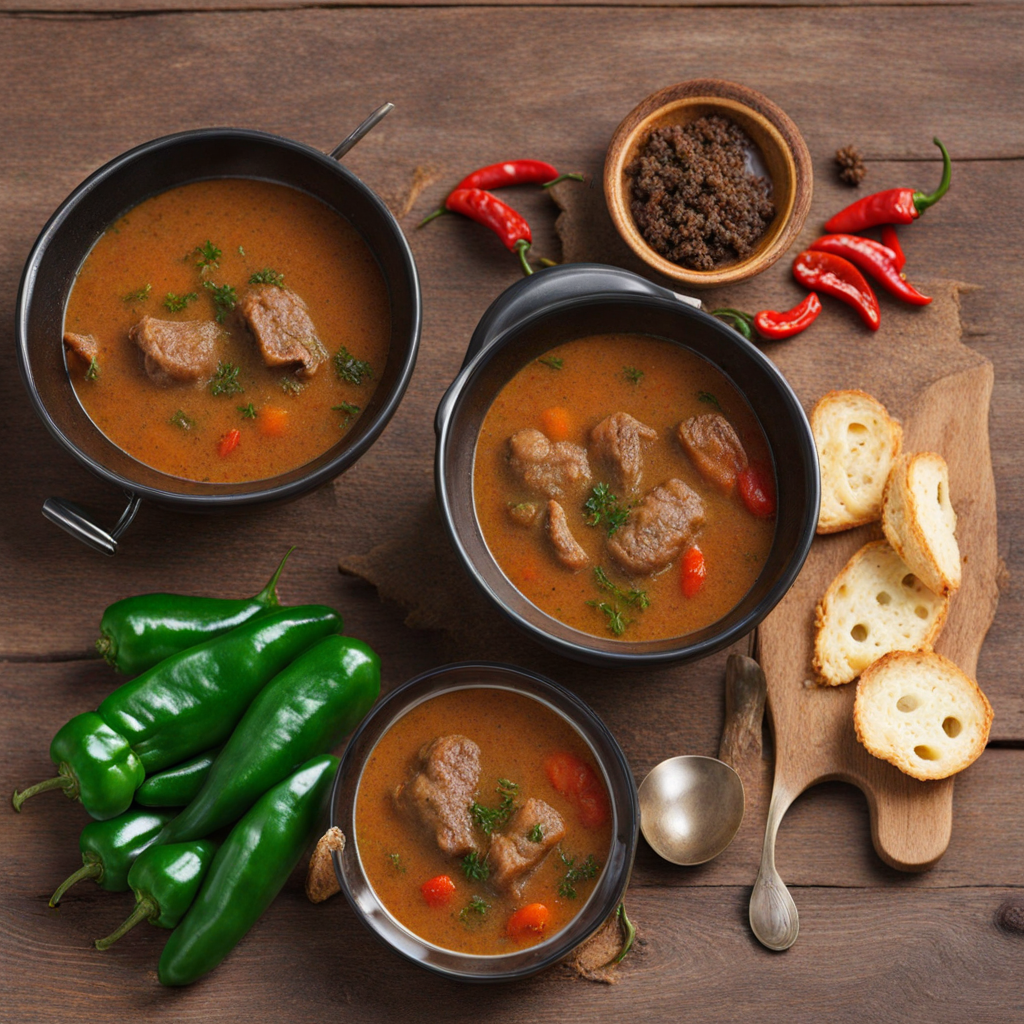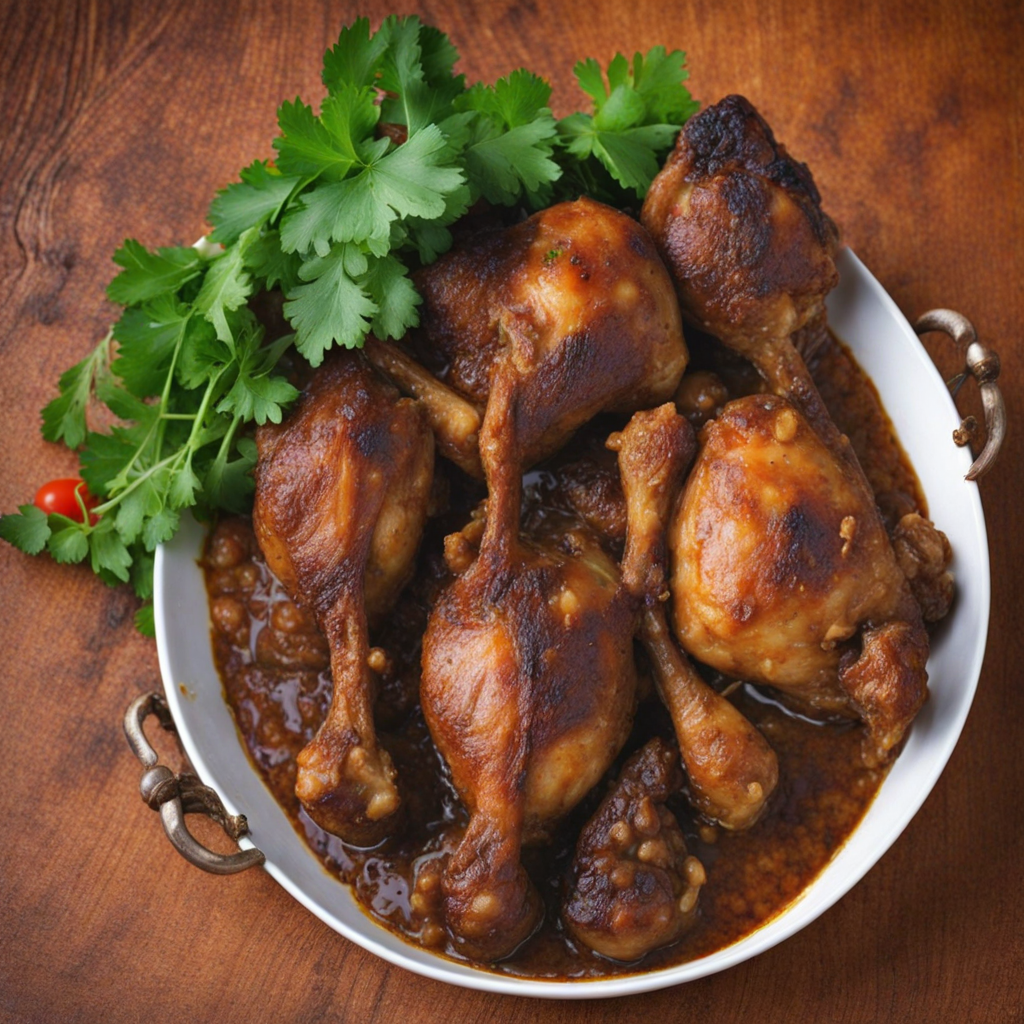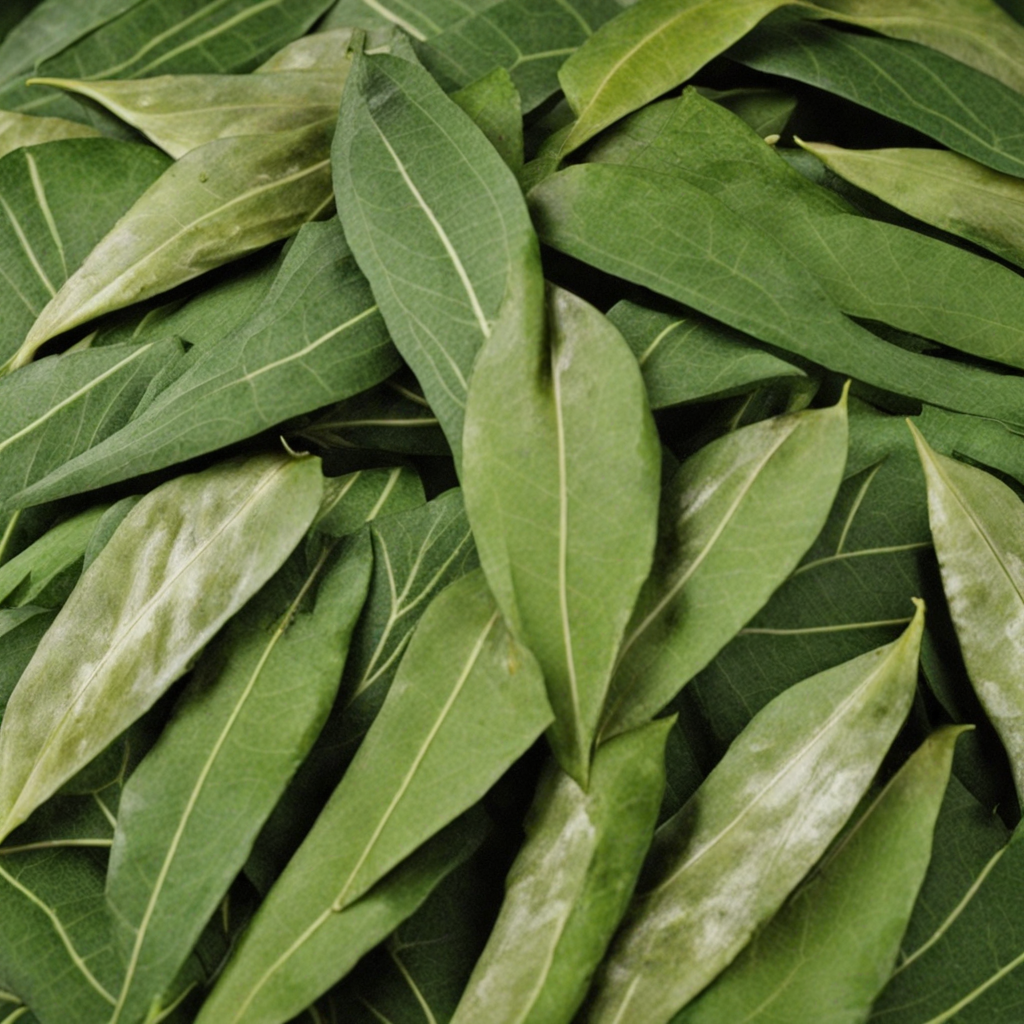Chicken Gabonaise
Chicken Gabonaise is a delightful dish that showcases the vibrant flavors and culinary traditions of Gabon, a country located on the west coast of Central Africa. This dish features tender chicken marinated in a blend of local spices, herbs, and ingredients that bring a unique depth to the flavor profile. The marinade typically includes ingredients such as garlic, ginger, and a mix of spices that may include paprika and black pepper, which infuse the chicken with a rich, aromatic taste. The use of palm oil, a staple in Gabonese cooking, adds a distinctive nuttiness and depth to the dish, making it a true reflection of the region's cuisine. Once marinated, the chicken is often grilled or roasted, allowing the flavors to meld beautifully while the exterior develops a tantalizing char. This cooking method not only enhances the taste but also ensures that the chicken remains juicy and succulent. Often, it is served with a side of cassava or plantains, which complements the savory notes of the chicken, providing a satisfying balance of textures and flavors. The dish is frequently accompanied by a spicy pepper sauce, adding an extra kick that can be adjusted to suit personal tastes. Chicken Gabonaise is more than just a meal; it is an experience that connects you to Gabonese culture and its culinary heritage. The vibrant colors and aromas wafting from the dish invite you to delve deeper into the flavors of Central Africa. Sharing this dish with friends and family embodies the communal spirit of Gabon, where food plays a central role in bringing people together. Each bite offers a glimpse into the rich agricultural landscape of Gabon, making Chicken Gabonaise a must-try for anyone eager to explore new tastes and culinary traditions.
How It Became This Dish
The Culinary Journey of Poulet Gabonaise: A Taste of Gabon #### Origins and Historical Background Poulet Gabonaise, or Gabonese Chicken, is more than just a dish; it is a cultural emblem of Gabon, a country located on the west coast of Central Africa. Its roots can be traced back to the indigenous tribes of the region, who have long relied on poultry as a source of protein and sustenance. Historically, chicken was a common domestic animal among the Bantu-speaking peoples of Gabon, who utilized it in various dishes, with each tribe adding its unique touch to the preparation and seasoning. The dish gained prominence during the colonial period of the late 19th and early 20th centuries when French influence began to permeate Gabonese culinary practices. The French introduced new cooking techniques and ingredients, which would later intertwine with traditional Gabonese flavors. This fusion created a culinary landscape rich in diversity, with Poulet Gabonaise emerging as a quintessential representation of Gabon’s gastronomic identity. #### Cultural Significance Poulet Gabonaise is not merely a meal; it embodies the spirit of Gabonese hospitality and communal living. It is often served during family gatherings, celebrations, and important events, symbolizing unity and togetherness. The preparation of this dish is often a communal affair, involving family members who come together to marinate, cook, and share the meal. This collaborative aspect reinforces social bonds and cultural traditions. In Gabonese culture, food is deeply intertwined with identity, and Poulet Gabonaise reflects the country’s rich biodiversity and agricultural practices. Gabon is known for its lush rainforests and abundance of natural resources. The chicken is typically sourced from local farms, and the accompanying ingredients, such as plantains, palm oil, and various spices, are often grown in local gardens, emphasizing the importance of local sourcing and sustainability. #### Ingredients and Preparation The preparation of Poulet Gabonaise is a labor of love, often involving a marinade that infuses the chicken with robust flavors. The marinade typically includes ingredients such as garlic, ginger, onions, and a blend of spices, reflecting the traditional cooking methods of the region. A key element is the use of palm oil, a staple in Gabonese cuisine, which adds depth and richness to the dish. While the traditional recipe is closely guarded, variations exist depending on local preferences and available ingredients. Some families may add fresh herbs or citrus juices, while others might include spicy peppers for an extra kick. The chicken is usually cooked slowly, allowing the flavors to meld beautifully, often grilled or roasted to achieve a crispy exterior while remaining juicy and tender on the inside. The dish is commonly accompanied by side dishes such as cassava, plantains, or rice, which serve to balance the rich flavors of the chicken. Together, these components create a satisfying and hearty meal that nourishes both body and spirit. #### Evolution Over Time As Gabon has evolved, so too has Poulet Gabonaise. The dish has adapted to modern culinary trends while retaining its traditional roots. With globalization and the increasing influence of international cuisines, chefs and home cooks alike have started experimenting with Poulet Gabonaise, introducing new techniques and presentations. In urban centers like Libreville, the capital of Gabon, Poulet Gabonaise can be found in various forms, from street food stalls to upscale restaurants. Contemporary chefs have embraced the dish, often incorporating it into gourmet menus, pairing it with exotic sides and sauces that highlight Gabon’s culinary heritage. This evolution has not only helped to promote Gabonese cuisine on the international stage but has also sparked interest among younger generations to explore their cultural roots through food. #### Challenges and Resilience Despite its rich culinary heritage, Poulet Gabonaise, like many traditional dishes, faces challenges in the modern world. Urbanization and changing lifestyles have led to shifts in dietary patterns, as younger generations gravitate towards fast food and global cuisines. However, there is a growing movement in Gabon to preserve traditional cooking practices and promote local ingredients. Chefs and food activists are working to raise awareness about the importance of cultural food heritage, encouraging people to reconnect with their culinary roots. Moreover, the rise of social media has provided a platform for sharing Gabonese food traditions, including Poulet Gabonaise. Food bloggers and influencers are showcasing traditional dishes, recipes, and cooking techniques, sparking interest among both Gabonese citizens and the global community. This visibility is crucial in fostering appreciation for Gabonese cuisine and ensuring that traditional dishes continue to be celebrated and passed down through generations. #### Conclusion Poulet Gabonaise is a dish that encapsulates the essence of Gabonese culture, history, and community. From its humble origins among indigenous tribes to its contemporary adaptations in urban settings, this dish tells a story of resilience, transformation, and the enduring power of food as a means of connection. As Gabon continues to navigate the complexities of modernity while honoring its rich culinary heritage, Poulet Gabonaise stands as a testament to the country’s identity. Each bite of this flavorful chicken is a reminder of the shared history, traditions, and values that bind the Gabonese people together—a delicious celebration of culture that transcends time and place.
You may like
Discover local flavors from Gabon


